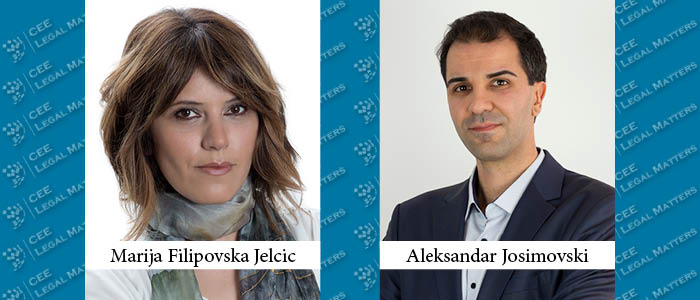In recent years, Initial Public Offerings on foreign exchange markets became a hot topic of discussion in Moldova. The Purcari Wineries Group, one of the biggest wineries in Moldova, got listed on the Bucharest Stock Exchange Market. Others are also tackling the prospects. An IPO on a reputable market means better corporate governance, transparency, prestige, and access to new sources of funding.
Montenegro: English Law Breakthrough in Financing
For many years, we have witnessed how the laws of England and Wales were introduced in the Montenegrin financial legal system by the application of Loan and Market Association (LMA) templates in financing transactions. It was usually the lenders insisting on having the LMA standards in the loan agreement and for the laws of England and Wales to govern the loan agreement.
Kosovo: The Banking and Finance Legal Framework and the Way Ahead
The banking and financial sector in Kosovo has undergone significant changes in recent years, including the introduction of new legislation for the industry. Kosovo has managed to build a sound and stable financial system, which has contributed to supporting the overall growth of the economy. In addition, financial institutions have been very active in making significant progress in the implementation of advanced technologies and innovation following the latest CEE developments.
Lithuania: The Creditor’s Guide to Security Instruments
The due performance of obligations in Lithuania may be secured by various security instruments. Pledge, mortgage, and financial collaterals all create a right in rem for the creditor, i.e., such a security, upon due perfection, becomes enforceable against third parties and withstands bankruptcy, reorganization, and similar procedures of the security provider. Other types of collateral, such as default interest, surety, guarantee, deposits, and other instruments agreed by the parties terminate immediately upon bankruptcy, reorganization, or similar procedures of the security provider.
Bosnia and Herzegovina: Investing in B&H from the Banking & Finance Perspective
The banking system of Bosnia and Herzegovina incorporates the Central Bank of Bosnia and Herzegovina, commercial banks, and other financial institutions. The Central Bank defines and controls the implementation of the monetary policy of Bosnia and Herzegovina, and assists and maintains appropriate payment and accounting systems. It also coordinates the activities of the banking agencies of the B&H entities (hereinafter: regulators), which are responsible for issuing licenses for the operation and supervision of banks.
Latvia: At the Forefront in Provision of European Crowdfunding Services
At the end of 2021, the Regulation (EU) 2020/1503 of the European Parliament and of the Council of October 7, 2020, on European crowdfunding service providers for business (EU Crowdfunding Regulation) entered into force. In light of the regulatory requirements, existing crowdfunding platforms with prior authorizations under national rules shall receive authorization under the new regulatory framework by November 10, 2023.
Hungary: Financing for Agriculture
Hungary’s agricultural sector has a rich historical tradition but faces challenges due to insufficient financing. The European Union’s Common Agricultural Policy (CAP) provides funding for farm restructuring and market support, while Hungarian farmers can seek financing from banks and cooperatives. The Hungarian government has also established various programs to provide financing for agriculture, including subsidies for machinery and technology investments and funding for training.
Czech Republic: Upcoming New Administrative Obligations for Payment Service Providers
The Czech government is introducing new requirements and obligations for payment service providers based on the latest EU legislation. The new rules are expected to take effect from January 2024 and the legislative process is underway.
Serbia: Financial and Banking Market Overview
Serbia’s banking sector faces another year of challenges. Global inflation in 2023, compared to the last quarter of 2022, records a slight slowdown, but one thing is indisputable – the main challenge in 2023, and not only in the banking sector, is the war in Ukraine.
North Macedonia: Conversion of Third-Party Loans into Share Capital Contributions in Trade Companies
Before the introduction of the latest amendments to the Company Law of the Republic of North Macedonia (Company Law) on April 29, 2022, it stipulated that only loans provided by sole shareholders to their companies may be converted into share capital. The practice of conversion overseen by the Central Registry of North Macedonia (CRM) was strict. For example, loans taken over by the shareholder from the companies of the same group were considered ineligible for conversion.
Bulgaria: Financing Alternatives Beyond Traditional Bank Funding
Although companies’ financing in Bulgaria remains primarily bank-based, a transformation towards the growing importance of alternative financing has been observed in recent years.
Ukraine: Banking and Financial Services Industry Developments
Notwithstanding the ongoing war, the Ukrainian banking and financial services industry continues to operate without interruptions and shows great resilience and stability. Ukrainian legislation continues to develop at the same time, bringing the standards of banking and financial services closer to the EU requirements.
Austria: New Investment Firm Act – The End of Mixing Apples and Oranges?
Investment firms, which operate in financial markets and provide investment services to third parties, were subject to the same organizational regulations as credit institutions, despite their different business and risk profiles. Their activities are regulated by MiFID II, which was transposed by the Austrian Securities Supervision Act 2018.
Croatia: Resilience Facing the Banking Crisis – The EU Credit Institution Recovery and Resolution Framework’s Role
In today’s global economy, credit institutions play a critical role in providing financial services to individuals, businesses, and governments. However, the failure of a credit institution may result in far-reaching consequences, as we have recently seen with banking crises in Switzerland, the US, and, potentially, Europe.
Slovenia: Are ESG Financings and Alternative Sources of Lending the Answer to Increasing Borrowing Costs and Strict Banking Rules?
In the context of the ESG framework, under the planned allocation within the EU, Slovenia should (according to the EIB) allocate EUR 520 million per year to renewable energy sources and their efficient use, and EUR 780 million per year if we add transport, waste, and water to the equation.
Know Your Lawyer: Roger Gladei of Gladei & Partners
An in-depth look at Roger Gladei of Gladei & Partners covering his career path, education, and top projects as a lawyer as well as a few insights about his as a manager at work and as a person outside the office.
Proposed Amendments to the Moldovan Renewable Energy Legal Framework
In the context of global efforts to migrate towards a green economy, based on renewable energy, the Republic of Moldova aims to improve and complete the regulatory framework applicable to the use of energy from renewable sources.
Moldovan Data Protection Law Follows Footsteps of GDPR
One of the most important recent buzzwords in Moldova, at the intersection of legal services and IT, is GDPR compliance and its associated complications (and opportunities) – to strictly follow both the GDPR (where applicable extraterritorially in Moldova) and the Moldovan legal framework, which is partially aligned with the EU law.






























